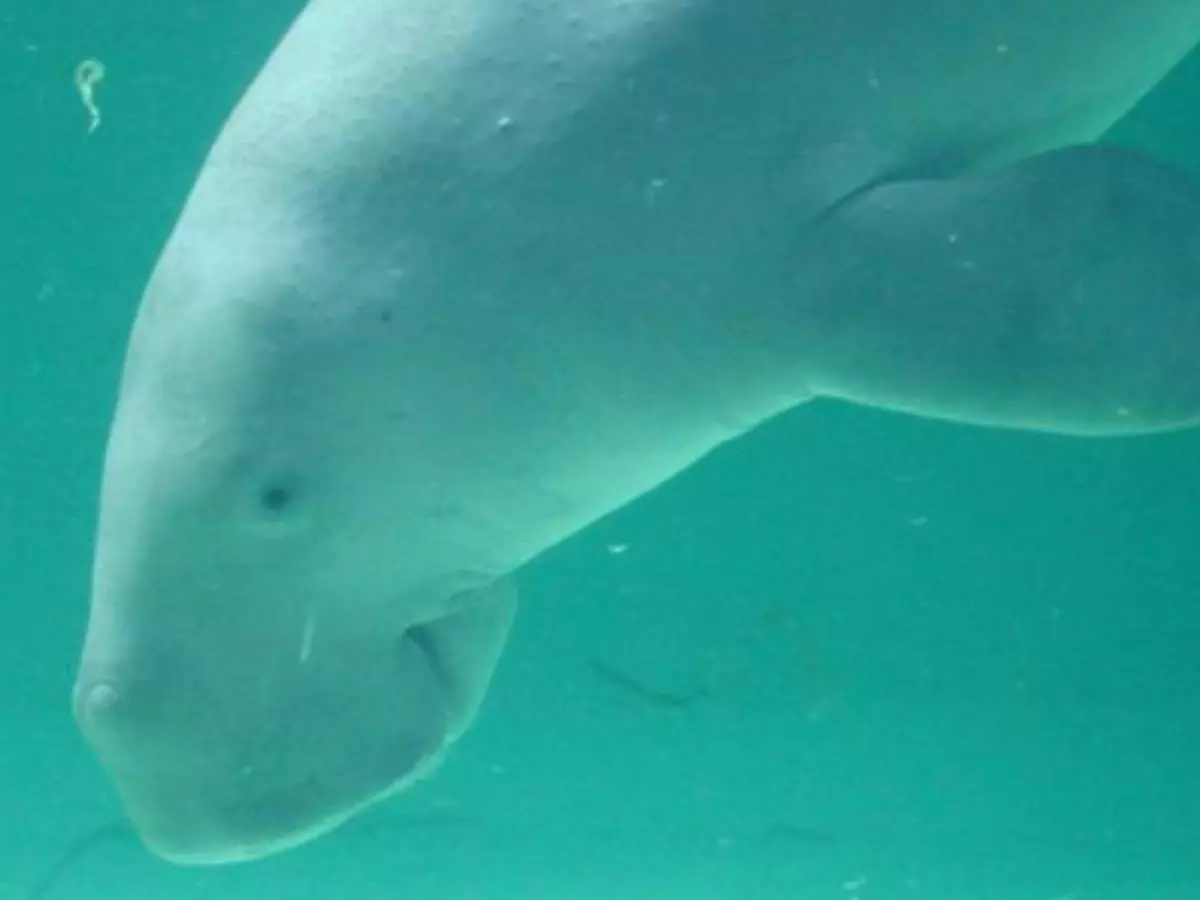Thanjavur Fishermen Rescue Highly Endangered Dugong Caught In Fishing Net
A group of fishermen from Manora in Thanjavur division rescued a young dugong. The dugong had been unintentionally captured in a fishing net. Palk Bay has been designated as the first dugong conservation reserve in India.

Dugongs are marine mammals that belong to the same family as manatees. They are also known as sea cows due to their diet of seagrass.
They are found in warm coastal waters, such as the Red Sea, the Indian Ocean, and the western and central areas of the Pacific Ocean, including Australia, where they are commonly found along the northern coast.
Dugongs are considered vulnerable to extinction due to a variety of factors, including hunting, habitat loss, and accidental drowning in fishing nets.
And now, a group of fishermen from Manora in Thanjavur division successfully rescued a young dugong that had been unintentionally captured in a fishing net.
Thanjavur fishermen rescued highly endangered dugong trapped in fishing net
Kudos to Thanjavur fisherfolk who rescued and safely released a young Dugong caught accidentally in their fishing net at Manora in Thanjavur division.Dugongs ate highly endangered. Govt. of TN has Notified India's first Dugong Conservation Reserve in Palk Bay #TNForest vc DFO pic.twitter.com/DQqAfMnquV
¡ª Supriya Sahu IAS (@supriyasahuias) May 9, 2023
Supriya Sahu, the Additional Chief Secretary for Environment, Climate Change, and Forests in the Tamil Nadu government, posted the video of the quick rescue on Twitter. In a letter, Sahu reported that Palk Bay had been designated as the first dugong conservation reserve in India.
She wrote: "Kudos to Thanjavur fisherfolk who rescued and safely released a young Dugong caught accidentally in their fishing net at Manora in Thanjavur division. Dugongs ate highly endangered. Govt. of TN has Notified India's first Dugong Conservation Reserve in Palk Bay #TNForest vc DFO."
The first dugong conservation reserve in India was established in 2022 in the Palk Bay region of the Gulf of Mannar by the state of Tamil Nadu. The reserve is situated halfway between Sri Lanka and India's southernmost point.
The action was taken to protect the threatened species.
¡°The notification of India¡¯s first Dugong Conservation Reserve in Palk Bay is a proud moment for Tamil Nadu and it is a great milestone in the marine conservation history of the country,¡± a press release said.
Water pollution is a threat to dugongs
 Flickr
Flickr
The once extensive family Dugongidae now only has one extant member: the dugong.
The marine mammal is confined to coastal areas since it relies heavily on seagrass communities for survival.
Unfortunately, they are fewer now than they were decades before, and their current distribution is dispersed. Numerous populations are thought to be on the verge of extinction.
The dugong is listed as an endangered species by the IUCN, and trading in its derivatives is restricted or prohibited under the Convention on International trading in Endangered Species.
According to the World Wildlife Fund, sea grass habitat loss or degradation due to coastal development or industrial operations that lead to water pollution is a threat to dugongs.
The dugong does not breed normally if there is not enough sea grass available for them to consume. Because of this, protecting their shallow water marine habitat is crucial. They frequently end up being "bycatch" after getting caught accidentally in fishing nets.
What do you think about this? Tell us in the comments.
For more trending stories, follow us on Telegram.
